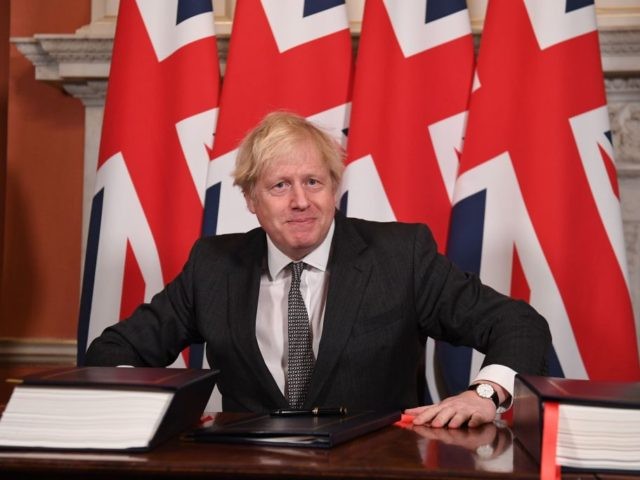The United Kingdom is no longer a meaningful member of the European Union, the culmination of decades of campaigning by Eurosceptics, and years of negotiations and political intrigue following the EU membership referendum.
Boris Johnson’s new European treaty, a trade deal agreed on Christmas Eve between the two parties and ratified by the British Parliament late last night took effect at 2300 GMT — until the very last moment the EU had proceedings running to their time, with Britain’s departure taking place at midnight Brussels’ time — signalling a major shift in the relationship between the United Kingdom and the European Union.
The United Kingdom voted to leave the European Union 1,652 days ago, on June 23rd 2016. In the time since the country has had three prime ministers, two general elections, and countless Brexit deadlines, failed Parliamentary votes, and attempts to frustrate the Brexit process altogether.
The new trade deal replaces the so-called transition period which governed the UK-EU relationship over the past 11 months. While the United Kingdom officially left the continental power bloc in January 2020, in most meaningful senses the transition period actually meant continued membership, with the country still paying billions to the EU and following the Brussels rulebook.
The coronavirus lockdown, and the fragmented way the UK has slowly withdrawn from the EU will leave the historic occasion unmarked with any large events, with even small private gatherings banned in Britain under the government’s lockdown-in-all-but-name. There were celebrations on January 31st 2020 — including a party in Parliament Square organised by Nigel Farage after the Conservative govenrment declined to organise anything itself — but spirits were somewhat lain low by the knowledge that it was not a true independence day.
Eleven months on, the United Kingdom has a more meaningful independence day, but one it cannot legally celebrate outside family groups at home. Even so, full freedom still eludes Britons — the government having ignored the counsel of Brexit leader Nigel Farage and others that a full, no-deal Brexit would be the best way to emerge into the world as a newly independent nation — and Boris Johnson’s deal contains several areas of real concern for Eurosceptics.
Not least among these is the fact that tonight, as the United Kingdom left the EU, important parts of it were left behind in Brexit limbo. Northern Ireland, until now a full and equal constituent nation of the United Kingdom, remains tied to the European Union in several key regards, because negotiations came down to the decision by Westminster and Brussels that keeping the peace with violent Irish nationalists through the Good Friday Agreement was ultimately more important than keeping the United Kingdom together.
As of today there is a customs border between Northern Ireland and the rest of the United Kingdom, while it has an open border with the European Union through the southern Republic of Ireland. British overseas territory Gibraltar — an important rock fortress on the southern tip of the Iberian Peninsula — has also been excluded from the rest of Britain’s Brexit, as Spain successfully lobbied Brussels to have the territory treated entirely separately.
Several key Brexit stakeholders have voiced serious concerns over the deal, although some subsequently went on to back it in last night’s parliamentary vote. The small-c conservative Bow Group has noted ten serious areas where the deal is deficient, their chairman suggesting these would become more pressing worries with time as the full scope of the deal becomes more widely known.

COMMENTS
Please let us know if you're having issues with commenting.